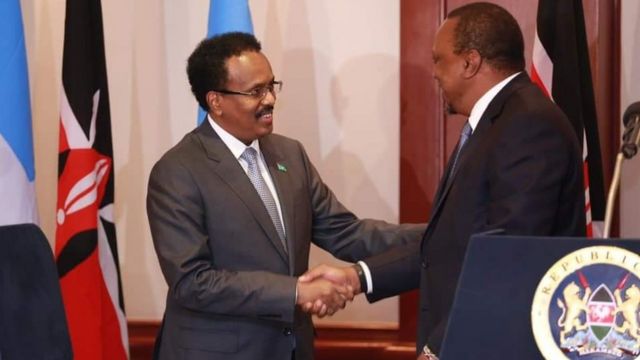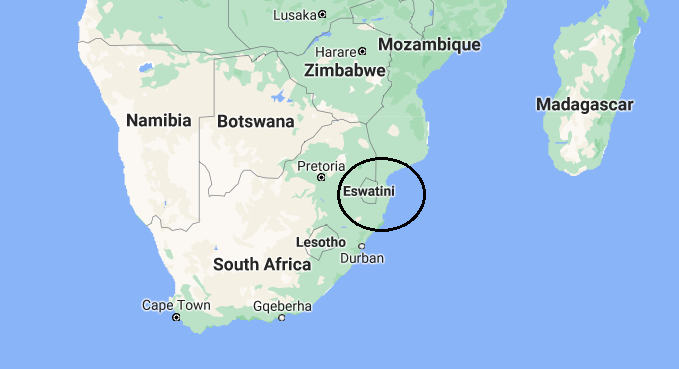After an anxious days-long wait, the outcome of the slated Tuesday, August 9, presidential vote conducted in Kenya in the east part of Africa has turned Nairobi, the nation’s capital into contestation.
It has even pitted the electoral body against the electoral constitutionality of the land.
Monday, August 16, would not be forgotten in a hurry for more than one reason. It was the fateful day when William Ruto, Uhuru Kenyatta’s deputy president who fell out with his boss was declared winner in a hotly contested presidential election. And Kenyatta in the election backed longtime opposition figure and former prime minister, Raila Odinga, instead, in his fifth attempt at the presidency but lost.
This same remarkable vote pitted post-election controversy mainly against members of the electoral umpire. Kenya’s electoral commission was seen openly divided as four commissioners out of seven went separate ways a few minutes before the declaration of results with recriminations of misconduct.
That the Chairman of the Independent Electoral Boundary Commission, IEBC, Wafula Chebukati declare Ruto, the winner of the election was not necessarily the bane of the ensued controversy but mainly the mathematical correctness of the election results among others.
In the results, Ruto scored 7,176,141 votes representing 50.49 per cent of the aggregate votes cast while Raila Odinga, the opposition leader got 6,942,930 translating to 48.85 per cent.
Other contenders are George Wajackoya who polled 61,969 votes (0.44%) while David Waihiga garnered 31,987 (0.27%).
The results have caused heated controversy ever since it was declared. Four out of seven IEBC commissioners headed by the vice chairperson, Juliana Cherera have rejected the results partly because the summation of the votes awarded to each of the four presidential candidates exceeded 100 per cent.
“This summation gives us a total of 100.01 per cent. This translates to approximately 142, 000 votes which will make a significant difference in the final results”.
They even dismissed the totality of the percentages of the results as a mathematical absurdity that defy logic and queried why the final tally was declared in the absence of results from certain constituencies.
Flanked by her fellow commissioners, Irene Masit, Justus Nyangaya and Francis Wanderi, Cherera added, ‘When we demanded that we verify the results, the chairman refused and insisted on declaring and announcing the results. However, 0.01 per cent of the the14,213, 027 total votes cast translates to around 1,400 votes”.
The disaffected IEBC officials said the results were rejected because the total number of registered voters, votes cast, and the number of rejected votes that were not declared were against the constitution and the law.
“Unless demonstrated otherwise, we all know that the percentage represents a faction of a whole number. For instance, 7.17m valid votes cast in favour of the winning candidate translated to 50.49 per cent, then it was 50.49 of what?
“The question is which figures of the 34 and the 39 respectively constituted the Independent variable to warrant the 25 per cent in 34 counties and 25 per cent in the 39 per cent for Raila and Ruto respectively”.
They wondered how Chebukati, the IEBC chairman said in the results that Raila attained 25 per cent of the votes in 34 counties while Ruto attained 25 per cent in 39 counties yet, there are only 47 counties in the country.
The officers, however, affirmed that the law requires all the seven commissioners to approve the final results of a presidential election for it to be credible.
Apart from the issue of whether or not the calculation of the election results was correct, there are concerns that from the metropolis of Nairobi to Kiambu, Kakamega, Bungoma, Nakuru, Meru, and Mombasa counties over 100,000 votes were rejected. Presently, western Kenya leaders have demanded to repeat the election in Kakamega county.
Again, the August polls did not have any ballots categorized as disputed votes but the electoral body said “if a vote is claimed by more than one contestant or agent, the presiding officer will count the vote in favour of one candidate and mark it as disputed. The Returning officer will thereafter make the final ruling on the vote”.
In his think-out, Chebukati had maintained the authenticity of the results and said contrary to the unverified results allegation, the polls were most transparent. He explained that all the results from form 34As were uploaded in real-time and in the public portal. Even the original form 34As, he said were delivered to the National Returning Officer for tallying and verification by the 290 Constituency Returning officers and one, Diaspora Returning officer.
As for the agents of the presidential candidates, Chebukati said they participated in the elaborate verification process. And, form 34C which contains tallies of all the 46, 229, and form 34A from polling stations were uploaded on the public portal for access by the media, observers, candidates and, the general public to tally the results declared at the polling stations. But he accused the four dissenting commissioners of demanding to moderate the results and force an election re-run contrary to their oath of office.
He disclosed that critical staff of the commission was intimidated and harassed through profiling and arbitrary arrests, with one murdered, and dismissed the rationale of the four disaffected commissioners as false and misleading.
It was on these premises that Chebukati dared any dissatisfied presidential candidates to approach the court for redress. In his words, “If any of the parties elect to file a petition, it is within their constitutional right and the commission shall have an opportunity to respond and demonstrate in further detail the circumstances under which the election was conducted, results verified and outcome declared by the constitution and the law”.
With Ruto declared the winner and fifth president-elect of the nation, Odinga swiftly rejected the results, declaring them null and void. He has beaten the seven-day’s window from the day the election was declared as provided by the constitution and challenged his close election loss at the supreme court which has 14 days to rule. If the apex court nixes the vote, as it did in 2017, fresh elections must be conducted within 60 days.
This development, no doubt, has set the stage for a fierce legal battle over who controls Africa’s biggest economy. The dispute and delay in swearing-in a new president risk political instability in Kenya, where previous contentious polls were marred by tragic violence that took its toll on human and valuable property.
Meanwhile, an analyst at Eurasia Group, Connor Vasey said the argument from the dissenting commissioners is “at face value pretty contradictory. They note that they have no alternative tally to what was announced but also say there are glaring mistakes. Their maths isn’t too sharp either”.
On the part of the Election Observer Group, it has affirmed that the official count from the electoral commission was consistent with its parallel tally, saying Chebukati was right in line with the provision of the constitution.
The election results, Ruto, added that they spoke for themselves and their validity was being questioned by only those who didn’t want to accept that they had lost. He even believed that Chebukati bent over backwards to accommodate everybody.
In disagreement with Ruto and Chebukati, an executive Party Director of the Azimio la Umoja, a coalition party, Raphael Tuju said they had stacked strong evidence to overturn Ruto’s victory.
But outgoing President Kenyatta has not yet, been congratulated even as Ruto’s transition committee set up to oversee a smooth handover has been put on hold. but an international intervention was handy.
But Martha Karua, Odinga’s running mate said they would accept the Supreme court ruling, “We look at the lawyers who are flexing muscles ready to send equal legal power and wit to defend William Ruto and Rigathi Gachagua’s win”.
Yet, Kenyatta’s future relationship with Ruto and Odinga appears to hang in the balance. Political pundits are worried that if Odinga wins, it would be a relief of a moral burden but otherwise, he may be seen to have committed a political suicide against an allay who never abandoned him while in the lurch.


